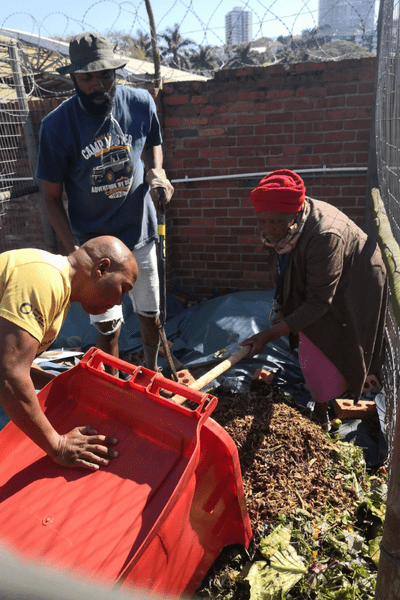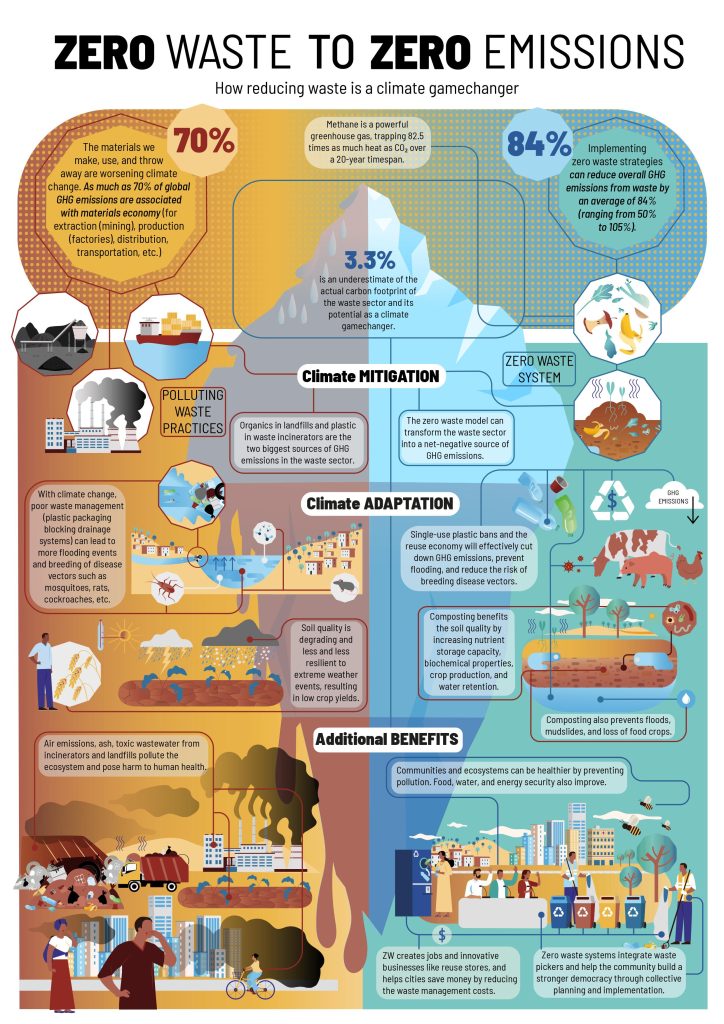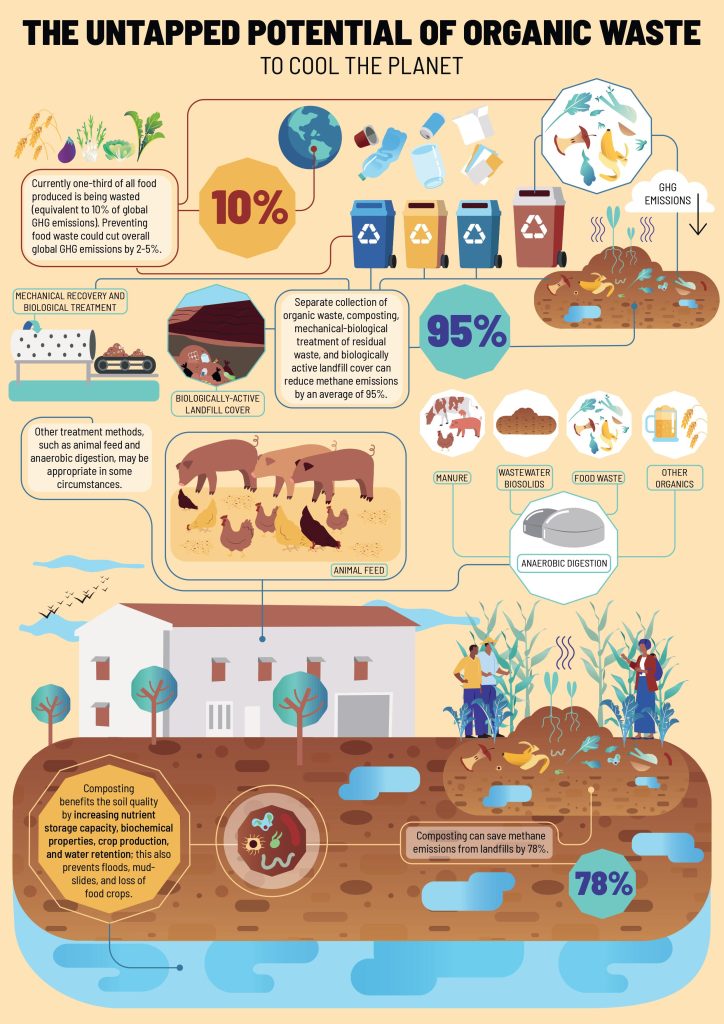How Reducing Waste is a Climate Gamechanger
A new report by the Global Alliance for Incinerator Alternatives (GAIA) provides the clearest and most comprehensive evidence to date of how better waste management is critical to the climate fight, while building resilience, creating jobs, and promoting thriving local economies.

Endorsements
City Case Studies
GAIA’s report modelled potential emissions reductions from eight cities around the world. They found that on average, these cities could cut waste sector emissions by almost 84% by introducing zero waste policies, with some, such as São Paulo and Detroit, able to reach net-negative emissions by 2030.

Bandung, Indonesia
The major source of greenhouse gas emissions in the city is from organics in landfills.

Dar es Salaam, Tanzania
In the Road to Zero Waste scenario, Dar es Salaam would achieve an increase in overall diversion rate from 0%-50%, avoiding annual climate emissions by 1,889,583 tonnes in 2030.

Detroit, USA
Through employing zero waste practices, Detroit could achieve net negative sector emissions by 2030.

Durban, South Africa
In the Road to Zero Waste scenario, eThekwini would achieve an increase in its overall diversion rate from 11% to 47%, avoiding annual GHG emissions by 1.5 tonnes by 2030.

Lviv, Ukraine
Zero waste activists in Lviv, Ukraine are aiding in emergency response. The city could reduce it’s sector GHG emissions by 93% in 2030.

São Paulo, Brazil
São Paulo could achieve net negative emissions in the sector by 2030, while creating thousands of good jobs for the informal waste sector.

Seoul, South Korea
The majority of Seoul’s waste sector emissions come from waste incineration.

Temuco, Chile
Temuco would achieve an increase in overall diversion rate from 2% to 55%, avoiding annual GHG emissions by 64,000 tonnes in 2030.















































